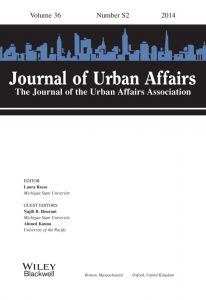Are Thrift Shops Just for Hipsters?
In an advanced capitalist society, such as the United States, individuals express their identities through the items they purchase, how they present themselves to others. For those with a lot of money, this often means conspicuous consumption, or buying items with the express purpose of being able to show them off to others (e.g. a waterfront mansion, a yacht, a Maserati). But expressing one’s personality through clothing, jewelry, make up, and other grooming practices is not just reserved to the...






1754-9469/asset/society_affiliation_image.gif?v=1&s=9197a1a6ba8c381665ecbf311eae8aca348fe8aa)